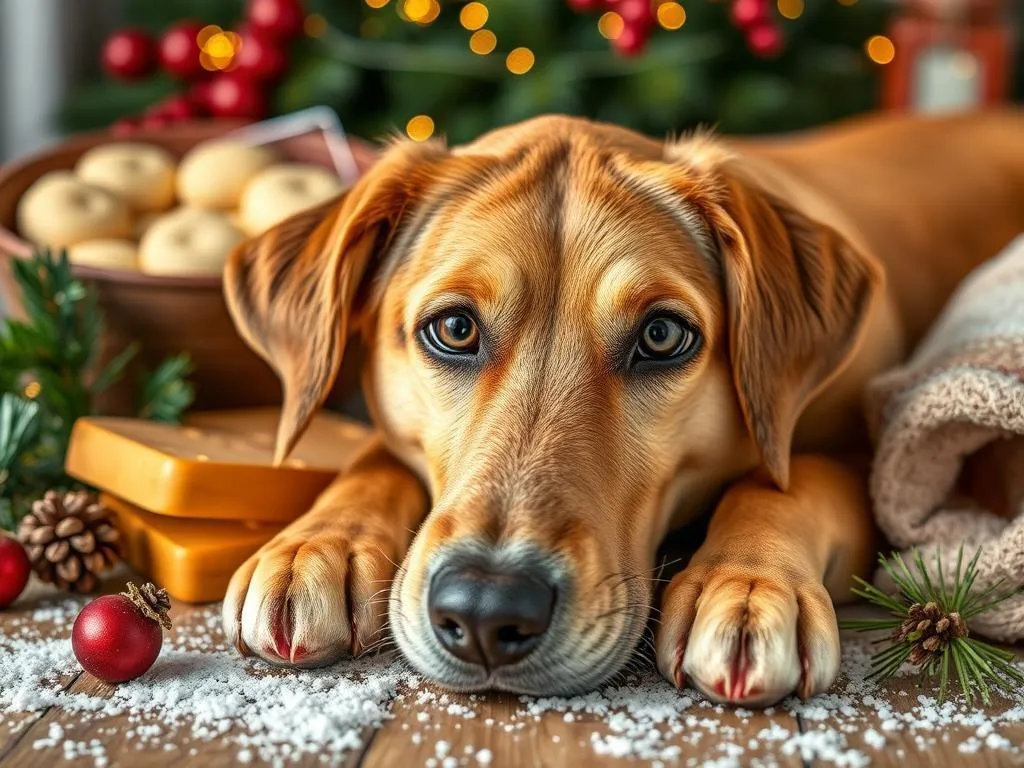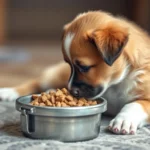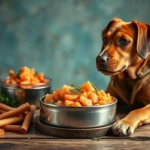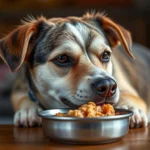
Introduction
As dog owners, we often take joy in sharing our lives with our furry companions. A significant aspect of that bond is the food we provide, which directly impacts their health and well-being. Proper dog nutrition is crucial for maintaining a healthy weight, promoting a strong immune system, and ensuring overall vitality. However, the holiday season presents unique challenges when it comes to our dogs’ diets. Many holiday foods can be tempting but are harmful to dogs. This article aims to educate dog owners about holiday foods that are bad for dogs, helping you make informed decisions that prioritize your pet’s health.
Understanding Dog Nutrition
The Basics of Dog Nutrition
Understanding dog nutrition starts with recognizing the essential nutrients that dogs require. Just like humans, dogs need a balanced diet that includes:
- Proteins: Essential for growth and repair of tissues.
- Fats: Provide energy and support cell structure.
- Carbohydrates: Offer a source of energy and aid in digestive health.
- Vitamins: Vital for numerous metabolic functions.
- Minerals: Important for bone health and other bodily functions.
It’s important to note that dogs have different nutritional needs than humans. While we might indulge in decadent holiday treats, many of these foods can be detrimental to our canine companions.
Common Dietary Myths
There are several myths surrounding “people food” that can mislead dog owners. For instance, some believe that sharing table scraps with dogs is harmless. However, many human foods can cause gastrointestinal upset or even poisoning in dogs. Misinformation about dog nutrition can lead to serious health issues, making it vital to understand what is safe and what is not.
The Risks of Holiday Foods
Why Holiday Foods Are Different
During the holidays, food options often become richer, fattier, and heavily seasoned. This change can be particularly dangerous for dogs, who have more sensitive digestive systems. Additionally, the festive atmosphere often leads to changes in routine and feeding habits, increasing the temptation to share these indulgent foods with our pets.
Potential Health Risks
Feeding dogs holiday foods that are inappropriate for them can lead to various health risks, including:
- Gastrointestinal issues: Foods that are too rich can cause vomiting or diarrhea.
- Toxic reactions: Some holiday foods can be toxic, leading to serious health complications.
- Long-term health effects: Regularly feeding dogs fatty or rich foods can contribute to obesity and pancreatitis, conditions that can severely affect a dog’s quality of life.
Specific Holiday Foods to Avoid
Common Holiday Foods That Are Toxic
Chocolate
Chocolate is one of the most well-known toxic foods for dogs. It contains theobromine, which can be poisonous to canines. The toxicity level varies:
- Dark chocolate: Most toxic due to high theobromine content.
- Milk chocolate: Moderately toxic; ingestion can lead to symptoms.
- White chocolate: Contains very little theobromine but should still be avoided due to high fat and sugar content.
Grapes and Raisins
Grapes and their dried counterparts, raisins, can cause kidney failure in dogs. The exact substance that makes them toxic is still unknown, and even small amounts can lead to severe health issues.
Onions and Garlic
Both onions and garlic belong to the allium family and can damage a dog’s red blood cells, leading to anemia. Symptoms may not appear immediately, but they can be severe and require veterinary attention.
Foods That Are Harmful but Not Toxic
Fatty Meats
While many dog owners might think it’s fine to share some leftover turkey or ham, fatty meats can pose risks such as pancreatitis. This painful condition can lead to hospitalization and a strict diet for recovery.
Rich Sauces and Gravies
Many holiday meals are accompanied by rich sauces and gravies, which often include harmful ingredients like onions and garlic. These can be detrimental to your dog’s health, even in small quantities.
Nuts (Especially Macadamia)
Certain nuts can be harmful to dogs, particularly macadamia nuts. Consumption can lead to symptoms like weakness, tremors, and hyperthermia.
Human Treats and Snacks
Dough and Baked Goods
Raw dough can be dangerous for dogs, especially if it contains yeast. The yeast can expand in the dog’s stomach, leading to painful bloating. Additionally, baked goods often contain sugar substitutes like xylitol, which are toxic to dogs.
Alcohol
Alcohol is extremely toxic to dogs. Even small amounts can lead to intoxication, resulting in vomiting, coordination problems, and even respiratory failure. It’s crucial to keep all alcoholic beverages out of reach of pets during the holiday festivities.
Safe Alternatives for Holiday Treats
Healthy Dog Treats
Instead of sharing potentially harmful foods, consider offering your dog healthy treats. Here are some suggestions:
- Homemade dog treats: Simple recipes using oats, peanut butter (without xylitol), and pureed pumpkin can be delightful.
- Store-bought treats: Look for treats specifically formulated for dogs, ideally with natural ingredients and no harmful additives.
Holiday Cooked Meals for Dogs
If you want your dog to join in on the holiday spirit, prepare safe meals for them. Here are some ideas:
- Cooked plain turkey (without skin or seasoning).
- Steamed vegetables like carrots and green beans.
- Brown rice or sweet potatoes.
Remember to practice portion control and avoid ingredients that can be harmful, such as onions, garlic, or excessive fats.
Tips for Keeping Dogs Safe During the Holidays
Preparing for Holiday Gatherings
When hosting holiday gatherings, it’s essential to manage food around guests. Here are some strategies:
- Designate a safe space: Create an area where your dog can relax away from the hustle and bustle. This reduces the risk of them grabbing food off the table or being fed table scraps.
Educating Guests and Family
Inform your guests about what foods are off-limits for your dog. Set clear rules regarding feeding your pet during festivities to prevent accidental ingestion of harmful foods.
Conclusion
As the holiday season approaches, it’s crucial to remain vigilant about your dog’s nutrition. Many holiday foods that are bad for dogs can be tempting, but with the right knowledge, you can keep your furry friends safe and healthy. Prioritizing your dog’s well-being not only enhances their quality of life but also strengthens the bond you share. By spreading awareness about safe dog nutrition, you can help ensure that all pets enjoy a happy and healthy holiday season.









